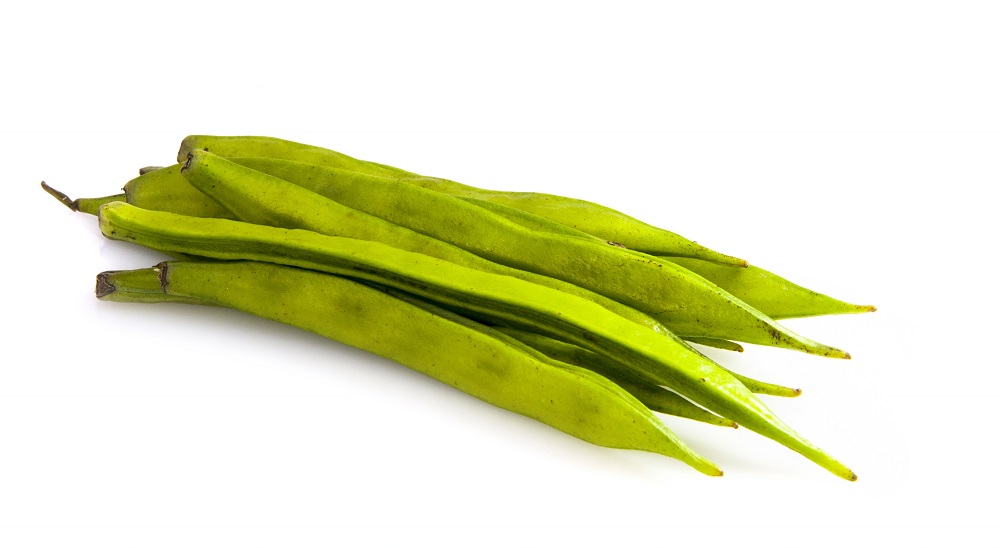Guar gum is a highly versatile substance that can be used in several different industries. While it is used as a food additive in food products, guar gum is also used in pharmaceuticals, paper, textile, explosives, oil, and cosmetics. The versatility of guar gum is mainly attributed to its convenient chemical composition. In food, guar gum is conventionally used as a thickener and stabilizer. As a common food additive, it is important to determine if whether an ingredient such as guar gum is vegan-friendly.
Since guar gum is practically the endosperm of the guar bean that undergoes different types of mechanical and chemical processes, it stands to reason that the food additive is perfectly vegan since no animal products or derivatives were involved in the production. Guar gum has had a history of being a health risk, but it has since then been standardized by various food safety authorities.

Guar gum is a polysaccharide composed of simple sugars mannose and galactose (1). It is considered a gel-forming galactomannan with linear chains of linked units. As a polysaccharide, guar gum has one of the highest molecular weights of all naturally occurring water-soluble polymers which help contribute to its viscosifying effect.
Guar gum, also known as guaran, is obtained from the seeds of the guar bean (Cyamopsis tetragonoloba). The plant is typically grown in various parts of the world such as India, Pakistan, USA, Africa, and Australia. However, India is considered to be the largest producer as it contributes about 80% of the world’s guar beans. The US accounts for the largest importer of Indian guar gum with China following behind.
The various industrial uses of guar gum boil down to its chemical composition that accounts for its interaction with water – essentially its rheology, viscosity, hydration rate, and hydrogen bonding activity. With its high molecular weight and ability to create viscous aqueous solutions, it is predominantly used in the food industry as a thickener and a stabilizer. In the food industry, the viscosity of a sauce or liquid can have a major impact on the consumer experience which is why companies use stabilizers to control that attribute.
Since guar gum does not contain any animal products or derivatives in its composition nor in its production process, the food additive is completely suitable for vegans. Guar gum is essentially made of a part of a fruit that underwent mechanical processes to grind it into a fine powder.
Guar gum begins by growing the guar beans in irrigated conditions. The plant is known to be highly resistant to drought and is considered a sun-loving plant with optimal conditions including a soil temperature of about 25-30°C and a relatively dry climate with sparse but regular rainfall.
As mentioned, India produces 80% of the world’s guar beans with 70% growing specifically in Rajasthan, a northwestern state that contains the bulk of the Great Indian Desert.
Once the fruits are harvested, the seeds are broken, and the germ is separated from the fleshy endosperm of the fruit. At this point, the thin fibrous husk of the seeds is removed. With the husk and the germ removed, the product is called refined guar splits. The husk and the germ are considered byproducts and are utilized as cattle feed.
Without sufficient industrial standardization, the refined guar splits are then processed by various techniques into guar gum powder. The processes used for guar gum powder production depend on the end product desired. A common process involves crushing pre-hydrated guar splits and then moved to a fine grinder. The powder is also often dried and passed through screens for grading the material according to particle size.
Mainly used as a stabilizer, guar gum is typically found in products that require a certain consistency or viscosity. Thus, it is common to find guar gum in ice cream, cheese, soup, yogurt, salad dressing, pudding, vegetable juices, gravies, sauces, and such. It is also used in baked goods to increase dough yield and improve texture.
While guar gum is basically a product from a natural source, there are health concerns that surround this substance. Namely, guar gum was banned by the FDA (Food and Drug Administration) along with 110 other ingredients found in non-prescription drugs. Since guar gum can make aqueous solutions extremely viscous, there have been reports of this ingredient becoming a choking hazard (2). However, these non-prescription drugs are predominantly diet pills which can be 100% guar gum.
In lower concentrations, guar gum is practically safe which is why it is still allowed in food because the functional concentrations of guar gum as a food additive are extremely low.
The FDA approves of guar gum as a stabilizer. It is considered GRAS (generally recognized as safe) as long as it is used in accordance with good manufacturing practices (3).
The EFSA (European Food Safety Agency) has also given its seal of approval for guar gum. According to the EFSA, guar gum is a safe food additive according to its re-evaluation (4). The EFSA does not even require an ADI (Acceptable Daily Intake; the amount of a substance that can be consumed daily without resulting in adverse health effects) for guar gum.
According to the re-evaluation, guar gum does not pose any toxicological effect on humans. It is a soluble fiber that the human body does not digest. Guar gum is not absorbed. Instead, it is fermented by the bacteria that live in the intestines.
References
1. https://www.ncbi.nlm.nih.gov/
2. https://www.chicagotribune.com/
